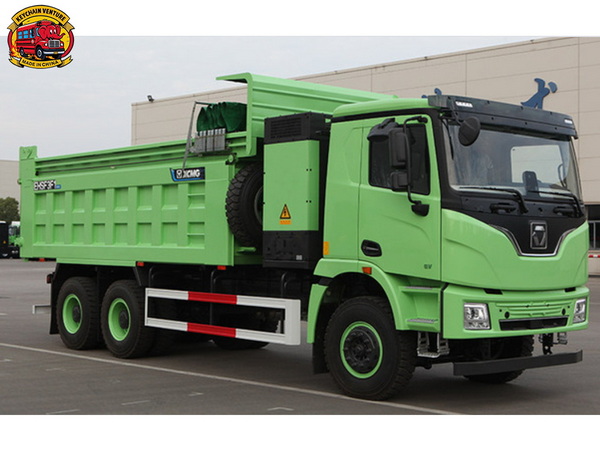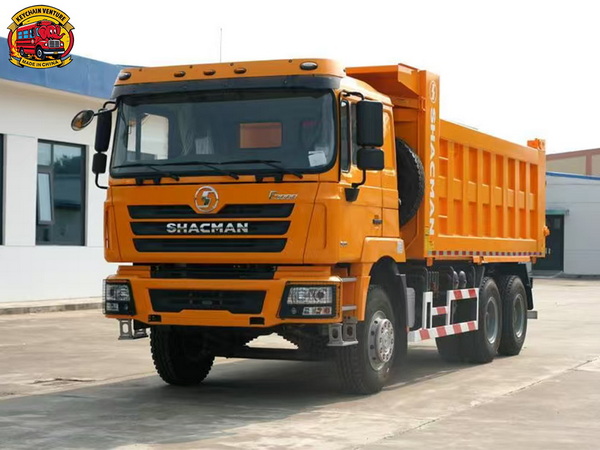Views: 222 Author: Amanda Publish Time: 2025-10-27 Origin: Site








Content Menu
● Step 1: Research the Dump Truck Industry
● Step 2: Develop a Robust Business Plan
● Step 3: Satisfy Legal and Licensing Requirements
● Step 4: Select and Purchase Your Dump Truck
● Step 5: Maintain and Operate Your Truck Efficiently
● Step 6: Build Client Relationships and Grow Your Business
● Step 7: Manage Finances for Long-Term Stability
● Maximizing Dump Truck Profits
● Overcoming Challenges Unique to Dump Truck Ownership
● Safety and Regulatory Compliance in Dump Truck Operations
● Leveraging Technology for Competitive Advantage
● Building a Brand and Online Presence
● Opportunities for Expansion in the Dump Truck Business
● Frequently Asked Questions (FAQ)
>> 1. What qualifications are needed to become a dump truck owner operator?
>> 2. How much money can a dump truck owner operator make?
>> 3. What are key expenses for dump truck businesses?
>> 4. How do I find clients for my dump truck business?
>> 5. What are the main risks in dump truck ownership?
Entering the world of dump truck ownership offers the promise of independence, stability, and profitability for those willing to combine technical expertise with business acumen. Whether you seek to launch a new career, diversify your trucking experience, or expand your commercial vehicle operation, becoming a Dump Truck owner operator is a practical path in today's logistics and construction industries.

A dump truck owner operator is an entrepreneur who takes charge of both vehicle ownership and operational duties within the heavy haulage sector. This role demands a combination of technical skills, regulatory knowledge, and business management capabilities, as well as an ability to build strong industry relationships and adapt to market fluctuations. By harnessing the power of reliable dump trucks and fostering client trust, owner operators drive essential supply chains across construction, mining, and municipal services.
Before investing in your first dump truck, research is crucial for understanding both local opportunities and national trends.
- Market Demand: Investigate ongoing and future projects in your area, such as commercial construction, roadworks, landscaping, and mining—all sectors that require dependable dump truck services.
- Regulations: Examine business licensing laws, city ordinances, and environmental regulations affecting haulage activities. Some regions enforce restrictions based on truck weight, routes, and times of operation.
- Competition: Analyze competitors for both pricing and service quality. Identify your unique selling points—such as rapid response, specialized equipment, or eco-friendly operations—to stand out.
A well-crafted business plan is your roadmap to long-term success as a dump truck owner operator. Key components include:
- Startup Costs: Factor in the price of acquiring dump trucks, registration fees, insurance, initial maintenance, and business setup expenses. Whether buying new or used trucks, weigh reliability against cost.
- Finance Options: Explore loan programs tailored to commercial vehicle purchases, such as those from banks, leasing companies, or government-backed initiatives.
- Revenue Projections: Estimate potential earnings based on local contract rates, average distance per haul, and number of loads per day.
- Marketing Strategy: Plan how to identify and approach target customers. This could include construction companies, landscaping businesses, demolition contractors, municipal agencies, and private clients.
- Risk Management: Outline how you will address common challenges—seasonal slowdowns, regulatory changes, equipment breakdowns, and payment delays.
Operating a dump truck business without the proper credentials can result in steep fines and business closure. Steps include:
- Obtaining a Commercial Driver's License (CDL).
- Securing vehicle permits, including Department of Transportation numbers and local haulage permits.
- Keeping business registration and insurance up to date.
- Understanding hours-of-service rules, drug and alcohol testing rules, and safety compliance obligations.
Regularly review both state and federal regulations, as changes may affect your business model or operational costs.
When choosing your dump truck, consider your unique business needs:
- Truck Type: Standard dump trucks are versatile for short and medium hauls. Transfer, super dump, and articulated dump trucks offer greater capacity or maneuverability for specialized tasks.
- Cost and Health: New trucks grant access to the latest technology, comfort, and warranties. Used trucks are budget-friendly but may require more frequent repairs.
- Capacity and Specifications: Match your truck to the loads you expect to haul. Engine size, bed volume, axle count, and suspension type all influence operational ability and long-term costs.
- Maintenance History: For used trucks, review inspection reports, service records, and accident history.
Consider consulting industry professionals and attending trade shows to gain firsthand experience before making a major purchase.
Once in operation, focus on maximizing uptime and reliability:
- Implement regular maintenance schedules for oil changes, brakes, tires, engine tune-ups, and hydraulic systems.
- Invest in genuine parts and trusted mechanics to minimize downtime.
- Track mileage, loads, and service intervals using fleet management software.
- Practice safe loading and unloading techniques to prevent worksite accidents and cargo spills.
- Address small issues proactively to avoid costly breakdowns.
- Clean and inspect your dump truck frequently for signs of wear, damage, or mechanical trouble.
Efficient dump truck operation keeps expenses low, extends the life of your equipment, and enhances client satisfaction.
Success in the dump truck business hinges on trust, reliability, and responsive service:
- Network: Attend local industry events, contractor meetings, and trade shows to build relationships with construction firms, landscapers, and municipal officials.
- Online Presence: Maintain business profiles and reviews on websites specializing in trucking, logistics, and construction—such as load boards and local service directories.
- Proactive Communication: Respond quickly to client inquiries, offer clear project estimates, and provide updates throughout the contract lifecycle.
- Service Diversity: Expand your services, including hauling aggregates, removing debris, delivering equipment, spreading gravel, and performing snow removal.
- Contractual Excellence: Honor agreements, arrive promptly, and deliver as promised for every job. Building a portfolio of positive testimonials allows you to command higher rates and access better contracts.

Sound financial management is essential for dump truck owner operators:
- Separate Business and Personal Accounts: Simplifies taxes, budgeting, and expense tracking.
- Accounting Software: Use modern tools to track invoices, manage payroll, categorize expenses, and prepare for audits.
- Monitor Cash Flow: Stay on top of income and expenditures to avoid shortages or unexpected debt.
- Tax Planning: Understand deductible expenses including fuel, maintenance, insurance, and depreciation.
- Profit Margin Analysis: Review your operating efficiency and pricing regularly; adjust strategies as needed to remain competitive and profitable.
Armed with strategic planning and operational discipline, dump truck owner operators can seize growth opportunities while managing risks:
- Identify High-Value Contracts: Prioritize projects with consistent work, higher rates, and minimal downtime—such as infrastructure construction, public works, and commercial renovations.
- Schedule for Efficiency: Map routes with GPS tools, minimize empty returns, and consolidate loads when possible.
- Reduce Costs: Choose fuel-efficient vehicles, negotiate bulk fuel discounts, and maintain optimal tire pressure for better mileage.
- Expand Services: Adapt to market changes by offering off-season work (snow removal, site prep), diversified materials hauling (soil, stones, building waste), or subcontractor arrangements.
- Invest in Growth: When ready, expand your fleet for multi-contract operations, improve technology and equipment, and recruit reliable drivers.
While dump truck ownership brings many rewards, it also poses significant challenges:
- Fluctuating Demand: Construction slowdowns, seasonal limits, or economic downturns can reduce available work. Mitigate by serving multiple sectors or contracting with municipalities for steady income.
- Regulatory Compliance: New environmental or road safety rules may require expensive upgrades or operational changes. Regularly participate in industry groups for timely updates and communal lobbying.
- Equipment Downtime: Preventative maintenance and parts stockpiling help address mechanical failures swiftly, reducing lost income.
- Competitive Pressure: Differentiate yourself with customer service, efficiency, and specialized expertise in niche markets.
- Risk of Nonpayment: Perform due diligence on new clients, require deposits, or use payment tracking tools to mitigate delays or defaults.
Safety and compliance are not only ethical obligations—they protect your livelihood and reputation:
- Follow Load Limits: Adhere to posted weight limits and inspect loads for proper distribution to prevent accidents.
- Driver Training: Ensure you and any employees have completed recognized safety courses and retain all certifications.
- Fleet Monitoring: Adopt telematics for real-time tracking of vehicle location, driver behavior, and operational efficiency.
- Drug and Alcohol Policies: Comply with all federal and state drug testing mandates.
- Record Keeping: Document inspections, incidents, and maintenance for legal protection and contract eligibility.
Modern dump truck owner operators use technology to drive efficiency and expand opportunities:
- Fleet Management Software: Track vehicles, schedule jobs, monitor performance, and generate reports.
- GPS Routing: Optimize navigation and fuel usage by selecting the most efficient paths to each job site.
- Load Board Platforms: Find contracts, monitor market rates, and schedule hauls with minimal downtime.
- Booking and Billing Tools: Streamline contracts, invoicing, and payment collection for more consistent cash flow.
- Safety Apps: Automate daily checklists, accident reports, and compliance reminders.
Investing in technology pays dividends in productivity, customer satisfaction, and overall business resilience.
In today's market, branding and online visibility are crucial for dump truck owner operators:
- Professional Website: Display your services, certifications, customer testimonials, and contact information.
- Social Media Promotion: Share updates, engage with clients, and showcase your fleet to attract new contracts.
- Local SEO: Optimize online listings on Google Business, Bing Places, and construction directories to rank for searches like “dump truck haulage in [city]”.
- Customer Engagement: Host webinars, offer advice in online forums, and collaborate with local influencers in the construction sector.
A strong brand combined with positive online reviews makes it easier to grow, command premium rates, and withstand competition.
As your business matures, there are several pathways for expansion:
- Fleet Growth: Use profits to purchase additional vehicles, hire drivers, and access bigger contracts.
- Specialization: Target niche markets such as hazardous waste hauling, soil delivery, or demolition debris removal.
- Regional Expansion: Open satellite offices in nearby markets experiencing growth, infrastructure investment, or construction booms.
- Partnerships: Form alliances with other contractors and suppliers to offer packaged services for large-scale projects.
- Franchising: Leverage successful operations into franchised models using proven processes and branding.
Expansion efforts should be carefully planned with attention to market research, capital requirements, and operational logistics.
The journey to becoming a successful dump truck owner operator involves much more than driving and hauling materials—it is a dynamic blend of entrepreneurship, industry expertise, and a passion for service excellence. By thoroughly researching your market, building a strong business plan, securing the right equipment, maintaining regulatory compliance, investing in growth, and leveraging modern technology, you can carve out a lucrative niche in the commercial vehicle industry. Smart risk management, ongoing learning, and building lasting customer relationships will ensure that your dump truck business not only survives but thrives in any economic climate.

A valid CDL, up-to-date truck licenses and permits, business registration, and comprehensive insurance are required. Familiarity with local regulations and business management skills are also essential.
Income can range from $40,000 to $200,000 per year, based on location, clients, contracts, and the efficiency of your operations. Success depends on minimizing costs, maximizing uptime, and securing reliable contracts.
Key expenses include dump truck acquisition (purchase or lease), fuel, repairs and maintenance, insurance, licensing fees, professional services, and marketing. Proper financial planning is essential for profitability.
Networking with local contractors, registering on load boards, digital marketing, attending trade events, and building an online presence are all effective means for acquiring clients and contracts.
Major risks involve market volatility, equipment breakdowns, regulatory changes, competitive pressure, and delayed or missed payments. Mitigating these risks requires diversification, compliance, and effective business management.